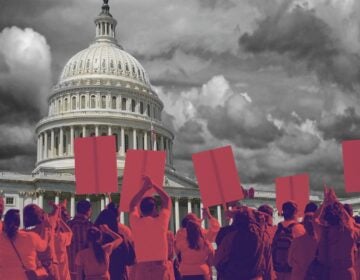Charlie Kirk’s killing and cycles of political violence
What are the forces driving political violence in America? Can we learn from the past to break the cycle and reset?
Listen 51:11
People hold candles and sing during a memorial and prayer vigil for Charlie Kirk at the John F. Kennedy Memorial Center for the Performing Arts, Sunday, Sept. 14, 2025, in Washington. (AP Photo/Rod Lamkey, Jr.)
Is America in a cycle of political violence and is there any way to stop it?
The assassination of conservative activist Charlie Kirk has left many Americans feeling that something is deeply broken in our culture and politics. In recent years, we’ve seen a rise in political violence, from the killing of a Minnesota lawmaker to the attack on Governor Josh Shapiro’s residence.
As commenters seek to assign motive to Kirk’s killing, some leaders are urging calm. Utah’s Republican Governor Spencer Cox called on younger Americans to “choose a different path,” saying, “your generation has an opportunity to build a culture that is very different than what we are suffering through right now.”
Meanwhile, President Donald Trump has taken a more partisan tone, placing blame squarely on the “radical left” without mentioning violent acts by far-right extremists.
As new details emerge about the suspect, attention is also turning to the role online culture can play in radicalization.
This hour, we examine the forces driving political violence in America, our culture, our politics, and our history. Is this a stress test for our democracy? Or can we learn from the past to break the cycle and reset?
Guests:
Kevin Kruse -professor of history at Princeton University and co-editor of Myth America: Historians Take on the Biggest Legends and Lies About Our Past.
Ruth Braunstein – associate professor of sociology at Johns Hopkins University and the SNF Agora Institute.
WHYY is your source for fact-based, in-depth journalism and information. As a nonprofit organization, we rely on financial support from readers like you. Please give today.






